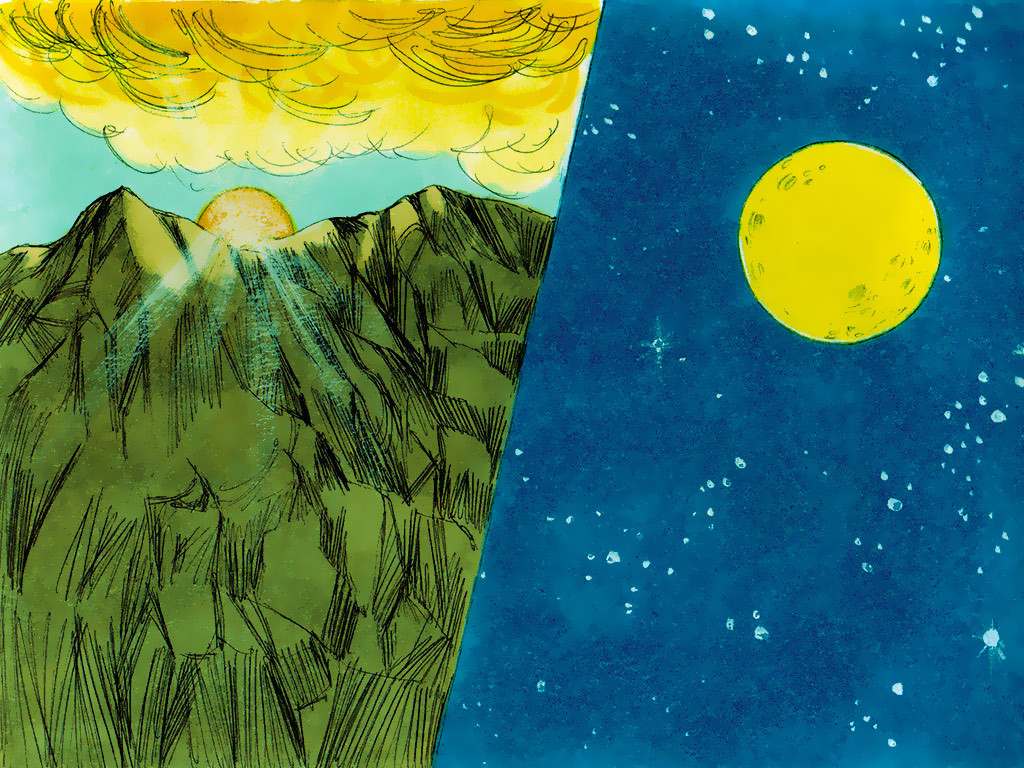Does the Biblical Day Begin at Sunset?
Asher Chee |
Traditional Judaism teaches that the day begins at sunset and ends at the following sunset. Thus, religious Jews keep the Sabbath day from sunset on Friday evening until sunset on Saturday evening—since Saturday is the Sabbath day.
This traditional Jewish view is derived from a particular interpretation of Genesis 1:5, which recounts the passing of the first day. This interpretation is reflected in translations like the King James Version (KJV) of the Bible:
And the evening and the morning were the first day.
This translation gives the impression that “the first day” consisted of the first evening and the following morning. However, this is not a proper reading of the Hebrew text.
The Hebrew text of Genesis 1:5 reads:
Wayhiy ʿereḇ wayhiy ḇōqēr yōwm ʾechāḏ.
The Hebrew word wayhiy is repeated twice in the verse. It is a verb that most naturally denotes the sequence of events in this context. Thus, a more accurate translation of Genesis 1:5 would be:
And then it became evening, and then it became morning. Day one.
So, if “it became evening” in verse 5, then what time of the day was it during the events recorded in verses 3–4? It was morning, or at least some time before evening. Hence, a better way to understand Genesis 1:3–5 is that God created light, and then the evening came, followed by the morning, and the day which had just passed was “day one”.
Hence, the formula repeated for each day of Creation, wayhiy ʿereḇ wayhiy ḇōqēr, should be understood as indicating the passing from one day to the next: “And then it became evening, and then it became morning.” God completed his work of Creation for the day, and this was followed by the evening of that same day, and when the morning of the next day came, the previous day ended.
This interpretation is further confirmed by the lack of this formula at the end of the account of the seventh day. Like the rest of the five days before it, the account of the sixth day ends, as expected, with the formula, “And the evening and the morning were the sixth day.” (Genesis 1:31 KJV) However, the account of the seventh day does not end with the formula, “And the evening and the morning were the seventh day.” If the day begins at sunset, then this makes no sense.
On the other hand, if the day begins at sunrise, then the absence of this formula after the account of the seventh day makes sense. Since the formula in Genesis 1:31 had already recounted the transition from the sixth day to the seventh day, and since God ended all his work of Creation on the seventh day (Genesis 2:1–3), then there was no need to recount the transition to the next day.
Finally, in Genesis 1:5, the same Hebrew word for “day”, yōwm (יוֹם), is given as a designation to the period of light rather than the period of darkness:
And God called the light day [yōwm], but the darkness he called night. And it became evening, and it became morning. Day [yōwm] one.
Therefore, it is more reasonable that the biblical day begins with the period of light rather than with the period of darkness—at sunrise rather than at sunset.

